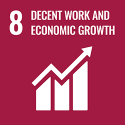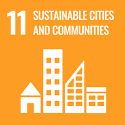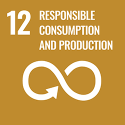Objectives and targets
Key objective: to prioritise sustainability in financial decision-making and to embed the principles of sustainable procurement.
Response lead: Finance
Our principal aim in finance and procurement is to make financial decisions that are consistent with our sustainability goals, to prioritise carbon-zero projects in capital planning wherever possible, and to embed the principles of progressive procurement throughout our activities.
Key objective: to prioritise sustainability in financial decision-making and to embed the principles of sustainable procurement.
Response lead: Finance




The way in which we manage our finances has a pivotal role to play in any plan to reduce carbon emissions – not only in terms of how we prioritise and allocate resource to carbon reduction projects but the way in which we procure the goods and services we require to flourish as a leading research and teaching institution. Recognising the scale of the challenge, we are working with strategic partners across the Forth Valley to identify potential areas of collaboration to reduce the Region’s overall carbon emissions, and thereby benefit us and local communities. We are also working with regional partners to promote a just transition toward a net zero carbon economy, noting for example the recommendations of the Scottish Government’s Just Transition Commission.
We have publicly committed to reporting all capital expenditure related to sustainability projects from March 2022. We plan to make this information available our Environment and Sustainability webpage and will be reported to Court on an annual basis. When planning capital expenditure, we actively consider whether existing buildings can be repurposed rather than building anew. Where decisions are taken to build new, we ensure that they are built to Passivhaus standards or their equivalent wherever possible. Similarly, we employ Enerphit or equivalent standards for all refurbishment projects wherever possible.
Much of the University estate was built in the 1960/70s with many buildings of single brick construction and single glazed windows. A continuous programme of refurbishment and replacement of the building stock has progressively raised the thermal efficiency of our buildings. Notable improvements include a £3.9m cladding and reglazing project of the Cottrell building. A further £38m was invested in the redevelopment of campus residences. This included three new halls of residence and town houses – all of which achieved BREEAM excellent ratings for environmental performance. More recently, the £21m redevelopment of our sports facilities has incorporated a heat pump to heat/cool the building while the £22m Campus Central development employs the building’s structure as a heat sink to store and gradually release heat over night.
In order for the University to remain viable as an internationally recognised centre for teaching and research, we recognise that carbon emissions will continue to be incurred as a result of essential business travel and commuting. Thus, to reach our net-zero carbon emission targets by 2040, we will adopt a means of carbon offsetting for those stubborn carbon emissions via a recognised carbon offsetting scheme. Carbon offsetting is already a requirement to hold some research grants and it is likely to become a general pre-requisite. We therefore commit to carbon offsetting in respect of business-related travel from 2023 using an accredited carbon offsetting scheme. For the most recent pre-Covid year (2018-19) – which reflects a typical level of business travel – the University of Stirling was responsible for an estimated 1773 tonnes of CO2 (by comparison, we accounted for 101.5 tonnes of CO2 in 2019-20 during the pandemic).
We are currently working with EAUC Scotland and other partners to identify a reliable means of estimating commuting travel and to establish sector standards in this area. It is important to note here, however, that our priority remains to avoid creating carbon emissions in the first place rather than offsetting them.
In line with our long-standing socially responsible investment policy, we reaffirmed in March 2019 our commitment not to invest in fossil fuel companies (see our financial policies). We will not invest in fossil fuel companies.
We also recognise that, as a major employer in the region, we have considerable economic and influencing power, especially with regards to procurement. We are in the process of finalising a new procurement strategy which recognises and encourages potential ‘new market’ entrants and new technologies. We are committed to identifying high sustainability impact suppliers and categories and will seek to employ the latest APUC tools and guidance to further improve supply chain monitoring and performance.
We recognise that supplier engagement is key to delivering sustainable benefits. Our strategy, therefore, is to put sustainability ‘front and centre’ of the contract award and throughout the contract management phase (where appropriate). We will also use APUC’s (soon to be published) Scope 3 report to establish supplier and category baselines, and explore whether a targeted supplier engagement programme may prove the best means of promoting continual sustainability improvement by key suppliers.
As part of our pledge to provide low carbon and ethically produced food, we have reduced food mileage by switching to local food producers and suppliers wherever possible. We have also increased seasonal fruit and vegetable provision throughout our catering outlets (e.g., our involvement in the Peas Please Pledge). Our food broker contract with Pelican ensures food supplied to the campus are ethically and responsibly sourced including Marine Stewardship Council certified aquatic food.